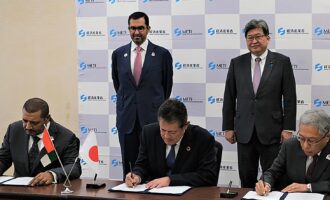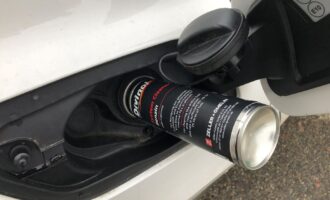SK Innovation bets on the electric vehicle as profits fall from its oil business
The electric vehicle (EV) battery market is expected to reach USD 16.4 billion in 2020, from a mere USD 2.18 billion last year, according to Werner Tillmetz, head of Germany’s non-profit foundation ZSW’s electrochemical energy technologies division.
Recently, South Korea’s leading oil refiner, SK Innovation, doubled the capacity of its battery plant in Seosan, 150 kilometers south of Seoul, to 700 megawatts. The plant is now capable of providing batteries for 15,000 vehicles a year. That figure may not sound impressive, but it represents 5% of the 283,202 electric cars sold worldwide in 2014.
SK Innovation’s investment in the EV battery business coincided with the softening of its core oil refining business, which suffered an operating loss for the first time in 37 years as a supply glut pummeled petroleum product prices.
SK Innovation provides lithium-ion batteries for EVs produced by South Korea’s Kia Motors which is part of Hyundai Motor–South Korea’s largest car manufacturer–and China’s state-run Beijing Automotive Industries Holdings. SK Innovation said it will expand cooperation with its Chinese partners to target the world’s largest automotive market in the next five years as Beijing aggressively combats the country’s pervasive air pollution problem by promoting clean energy vehicles.
“Our goal is to supply batteries for 20,000 vehicles produced by Kia Motor and Beijing Automotive Industries Holdings this year,” Kim Hong-dae, director of SK Innovation’s Battery & Information and Electronic Materials, said. “SK Innovation will step up the current partnership to tap deeper into the battery market at home and abroad.”
Unfortunately, as with any quickly-expanding market comes the volatile roller coaster of consumer demand. The EV battery market, while having gained momentum and traction recently, has mostly failed to live up to expectations. Electric cars made up less than half of a percent of the 85 million new vehicles sold worldwide last year. The idea of an electric car hits a chord with newer generations who tend to take more interest in environmental concerns, but the fact of the matter is that there’s a disconnect in that interest versus an actual purchase.
The reasons are plenty, including the lack of battery charging infrastructure, slow battery charging times and a higher sticker price. Additionally, falling oil prices are quick to lure customers away from a new car purchase, keeping them within the familiarities of gasoline- or diesel-powered vehicles. However, battery cost, which is not insignificant, is going down at a rapid pace, more than halving in the past four years. According to the U.S. Department of Energy (U.S. DOE), battery costs based on development efforts have gone from USD 1,000 per kilowatt hour (kWh) in 2008 to USD 485/kWh of usable energy at the end of 2012.
SK Innovation faces tough competition with market leaders at home and abroad. In South Korea, LG Chem Ltd.,which is part of the LG Group, and Samsung SDI Co., a chemical unit under the Samsung Group, are the top two EV battery producers in South Korea. Samsung SDI recently expanded its EV battery business by acquiring the battery pack business of major auto parts supplier Magna International. Samsung supplies batteries to BMW for its i3 electric city car and i8 plug-in-hybrid sports car. Meanwhile, Japan’s Panasonic Corp. is working with Tesla Motors to build the largest lithium-ion battery plant in the state of Nevada in the United States.
“So far, supplies have been exceeding demand. But the trend is expected to shift starting from 2018,” Kim said confidently. “Although there are challenges for the battery business, we will focus on developing highly efficient, affordable battery technology to reap profits in the next two or three years,” he said.









